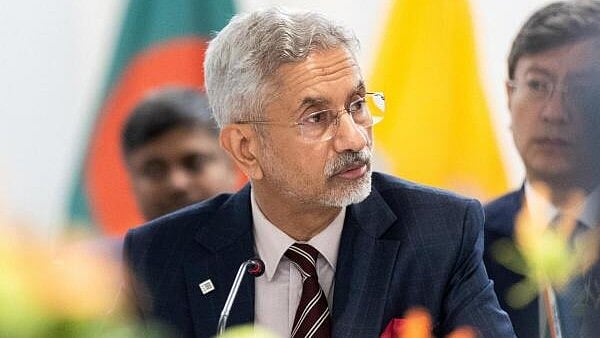
External Affairs Minister S Jaishankar.
Credit: PTI Photo
New Delhi: India has cold-shouldered the latest moves by Nepal, Bangladesh, and Pakistan to breathe new life into SAARC, which has remained stalled since 2016.
Kathmandu’s move to have a meeting of the foreign ministers of the SAARC nations on the sideline of the United Nations General Assembly in New York did not come to fruition, primarily due to the reluctance of New Delhi, which, according to the sources, made it clear that no attempt to revive the regional organisation would succeed as long as Pakistan would continue to export terror to India.
External Affairs Minister S Jaishankar, however, hosted the meeting of the foreign ministers of member nations of BIMSTEC (Bay of The Bay of Bengal Initiative for Multi-Sectoral Technical and Economic Cooperation) in New York on Saturday.
With SAARC in an impasse since 2016, New Delhi has been promoting the BIMSTEC as an alternative forum for regional cooperation. The BIMSTEC comprises seven nations, including five of the eight SAARC members, but not Pakistan, which India has been accusing of blocking regional connectivity projects.
Just a few weeks before the UN General Assembly, the chief advisor of the new interim government of Bangladesh, Muhammad Yunus, too called for the revival of the SAARC. He had even stated in an interview with a news agency that he would meet Prime Minister Narendra Modi and would try to get the leaders of all the SAARC nations together in New York for a photo-op.
Modi, however, returned to New Delhi after visiting Delaware in New York even before Yunus landed in the US. With his plan to have a photo-op of the SAARC leaders falling flat, Yunus raised the issue during a bilateral meeting with Pakistan Prime Minister Shehbaz Sharif on the sideline of UNGA last week. He suggested that Dhaka and Islamabad could work together for the revival of the SAARC. Sharif said that Pakistan and Bangladesh could work on the proposal step by step.
In New York, Yunus also had a meeting with Nepalese Prime Minister K P Sharma Oli, who had got his government to initiate the move to have a meeting of the SAARC foreign ministers in New York on September 26.
The foreign ministers of the SAARC nations earlier had meetings on the sideline of the annual UN General Assembly in New York. It, however, did not take place since 2020 when India and other members of the eight-nation bloc turned down Pakistan’s demand to allow an official of the interim government the Taliban set up in Kabul to represent Afghanistan in the meeting.
Neither New Delhi nor any other nation has so far recognized the government the Taliban announced in Kabul after returning to power in Afghanistan in August 2021.
After back-to-back terror attacks in India by outfits based in Pakistan, Modi had declined to attend the 19th SAARC summit that his then counterpart M Nawaz Sharif had planned to host in Islamabad in November 2016. The leaders of other nations had also decided to stay away leading to the cancellation of the conclave. The SAARC has remained in an impasse since then.
India also accused Pakistan for playing spoilsport to block several SAARC initiatives.
The SAARC leaders were set to ink two pacts during the 18th summit of the eight-nation bloc in Kathmandu in November 2014 — Regional Railways Agreement and Motor Vehicle Agreement for Regulation of Passenger and Cargo Vehicular Traffic. But the then Pakistan Prime Minister Nawaz Sharif maintained that his government had not yet completed the internal procedure for inking the agreements.
If signed by all the eight member countries, the agreements would have made it possible for vehicles and trains — both passengers and cargo — to move from one country to another within the SAARC region without any hassle. Pakistan did not ratify the SAARC Convention on Mutual Assistance on Criminal Matters and is also blocking the establishment of the SAARC Terrorist Offences Monitoring Desk and SAARC Drug Offences Monitoring Desk.
